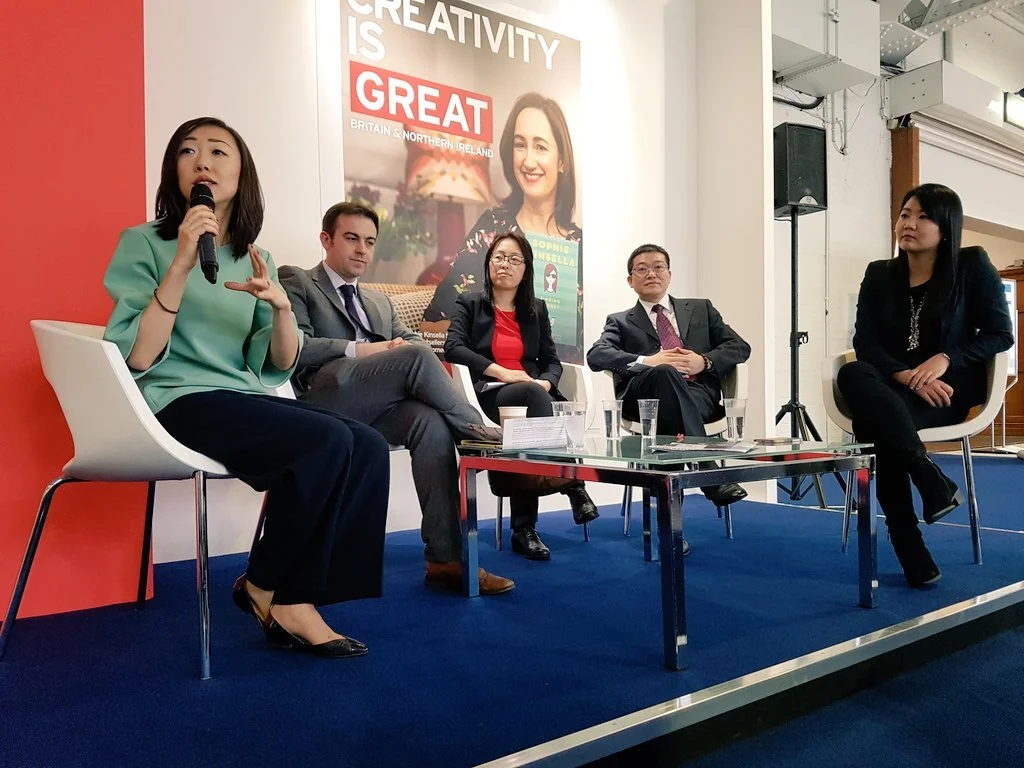China post Covid: three key trends
Chinese publishing is getting back to business, Alicia Liu reports on BookBrunch, Opinion - International
Many parts of the world continue to battle the Covid-19 crisis and its knock-on effects, but much of China has reopened. September has essentially been a busy, "back to normal" month. Mr Xu Hai, editor in chief of Phoenix Publishing and Media Inc, which ranked No 1 in the 2020 China mid-year publishing revenue report, has just returned to Nanjing for the first Smart BIBF online edition, from a string of business trips from Shanghai to Beijing to reconnect with the rapidly recovering market.
The pace of China's recovery from the effects of Covid-19 has been fast. Book launches and promotional activities have substantially increased in China over the summer as companies are trying to get people back to the stores and drive online sales. During the largest mid-year "Online Shopping Festival 618" in June, sales of children's books increased by 43% year-on-year, international imported titles increased by 57% year-on-year, and digital content was 15% up of the same period last year.
While much of the business world is looking to China for lessons on recovery, I have identified three key trends in Chinease publishing that are accelerated and amplified in importance through the pandemic, and how international publishers can benefit from the resilient and optimistic consumer market.
1. China's live-streaming boom is revolutionising sales, in particular for publishing
To quote Xu Hai, editor in chief of Phoenix Publishing and Media Inc, marketing through live-streaming has become an essential skill for publishers in China when we are navigating the inevitable shift to online sales.
While in the West, short video apps like TikTok are seen as a form of entertainment, in China they are used extensively for online sales, and have also moved into more sophisticated areas of cultural consumption.
Stephen Schwarzman, CEO of US investment company Blackstone, launched the Chinese edition of his biography with CITIC Press earlier this year at the height of the pandemic. The launch included interviews on the impact of the US China trade war on the global economy that were livestreamed to an audience of potential purchasers through social media and online media platforms in China, reaching 8.94 million people online. The biography immediately peaked at number one, with an additional print run of 100,000 copies requested after being on sale for only one week.
"It shows a huge appetite from the market with direct involvement from an influential international author," explained Fang Xi, deputy editor in chief of CITIC Publishing Group.
Livestreaming bookselling in China
By August 2020 the value of livestreaming transactions from publishing was ranked number three, second only to automobiles and electronics on China's major e-commerce player Alibaba's Taobao platform.
Is this going to be sustainable, or just a post-Covid bounce? Chinese children’s publisher Yan Xiaoli, founder of Dandelion, predicted that this would endure, as China's retailers have fully integrated the new boom in "shoppertainment" to let them interact with distant customers.
2. Bestsellers' keywords: China, self-improvement and the future generation
When Chinese Publisher's Magazine analysed 3,000 bestsellers in the past three years in China, the three keywords that define market success were
China - stories drawn from the Chinese heritage
Self-improvement - reflecting the increase in social pressure and anxiety felt by the growing Chinese middle class
Children's titles - how to educate the future generation
DuKe is a private Chinese publisher known for its bestseller Half an Hour Chinese History comic series. Earlier this month, it successfully listed on the Shenzhen Stock Market. Talking about its winning formula, the editor said that, as a result of the pandemic, Chinese consumers were looking for fun. It takes you only half an hour of reading this comic book to get a grasp on China's 5,000 years of history. This light hearted comic format experienced a dramatic growth in the market from 445 titles in 2015 to 788 by mid 2020 (Open Book).
Children's titles experienced a steady growth during the pandemic worldwide, and the Chinese market is no exception. Ambitious millennial Chinese parents who are willing to invest early to give their children a head start have become loyal consumers for both parenting and children's titles.
For Chinese publisher Green Bean Books, the real potential of growth of children's and parenting books lies in digital - in particular audio podcasts. As the Chinese publisher for titles such as Not In Your Genre: The Real Reason Children Are Like their Parents by UK author and psychologist Oliver James, it has developed a series of audio podcasts hosted by Chinese influencers for paid subscribers on the Green Bean Talk app. "We started the app back in 2018, but the pandemic this year has definitely accelerated our growth and outreach to non-traditional book readers - people who don't necessarily buy our books but subscribe to listen to the audio podcast 10 minutes a day," explained Green Bean founder Su Yuan. "We are transforming from the traditional publishing model to an online company with consumer data directly feedback to our publishing programme." In the past three years the publisher has grown from a small team into a workforce of more than 100, with a dedicated audio programming and technology supporting team.
3. New forms of digital engagement are here to stay
One of the challenges of the pandemic is the restrictions on international travel. As a result, international books fairs such as Beijing International Book Fair have made online events core components of their offerings, with a dedicated BIBF Smart Rights Link platform for publishers to do rights deals, share insights and network.
While catching up with Chinese publishers during the BIBF online fair in September, Susannah Palfrey, international business development director at Hachette Children's Group, reflected on the new way of digital engagement, “The increased use of video conferencing has definitely made a positive impact on global business, particularly with China," she said. "Meetings tend to be more productive, with more time to discuss key issues. We have been able to progress projects far more effectively with regular video conferencing than via email, too. For us, it has created a new opportunity to engage with publishers in China in a more in-depth and successful way."
Although physical events have their own dynamics, which cannot be replicated with a virtual experience, by replacing them with a series of more flexible, smaller meetings and encounters through video conferences and China's universal messager WeChat, we can still get back to constructive business with the Chinese market.
Chinese consumers are among the most confident and optimistic in the world post-Covid, as observed by McKinsey consumer research. Their confidence has translated into spending in the publishing market. Chinese was the leading individual language for foreign language rights and co-editions for UK publishers in 2019, with translation rights income trebled in the past five years, according to the Publishers Association Yearbook. With China's biggest online shopping festival, "11 November Single's Day", coming up, all eyes are on China now to see if the eastern promise can deliver again.





